- Home
- Kathryn Lasky
Tangled in Time 2
Tangled in Time 2 Read online
Dedication
For Luella Grace Knight,
a passionate reader
Contents
Cover
Title Page
Dedication
Torn
Chapter 1: Fingers Crossed
Chapter 2: Fish Sticks and Other Lunchroom Atrocities
Chapter 3: Know Thine Enemy
Chapter 4: A Creak on the Staircase
Chapter 5: The Virtual Rose
Chapter 6: Stuck Up!
Chapter 7: Eternally Youthful
Chapter 8: A Bitter Wind
Chapter 9: Born to Bully
Chapter 10: A Shadow World
Chapter 11: Happy Snow Day!
Chapter 12: The Art of Smugness
Ominous Signs
Chapter 13: A Proper Head for a Proper Crown
Chapter 14: The Blessing of a Blizzard
Chapter 15: The Longest Night
Chapter 16: They Burn Witches Here, Don’t They?
Chapter 17: Without Darkness There Is No Light
Chapter 18: The Snow Fairy’s Bat Mitzvah
Chapter 19: The Gift
Chapter 20: A Message
Chapter 21: The Kindling
Chapter 22: Migrant in Time
The Burning Queen
Chapter 23: Pugs and Pixies
Chapter 24: The Dress
Chapter 25: The Hush Book
Chapter 26: The Wedding
Chapter 27: Living in Two Worlds
Chapter 28: The ICE Men
Chapter 29: The Scent of Smoke
Chapter 30: Phantom Baby
Chapter 31: Fire and Ice
Chapter 32: “Someone over There Misses You”
Chapter 33: Welcome to America
Chapter 34: Another Mary, Another Queen
Epilogue
About the Author
Books by Kathryn Lasky
Copyright
About the Publisher
* * *
THE INDIANAPOLIS TRIBUNE
Bow Ties Not Just for Guys?
by Betsy Langford
Fashion blogger and Lincoln Middle School student Rose Ashley and a group of her friends have started a new trend—bow ties.
“Bow ties are gender free,” says Rose. “They add a lot to an outfit and can help express your personality.” Before moving to Indianapolis, when she was a fifth grader in Philadelphia, Rose started a bow tie of the month club. “Bow ties are really easy to make. So I just posted the directions on my blog and picked out an easy-to-find fabric, and kids would copy them.” Now, however, she and her team of “Christmas Elves,” as she calls them, are making and selling the bow ties. All proceeds go to the Indy Christmas Fund for Needy Children. So far they have raised almost $1,000. Members of her team are fellow Lincoln Middle School students Susan Gold, Sibby Huang, Anand Preet, Myles Randolph, Kevin Ellsworth, Joe Mallory, and Sayid Nassim.
“We use all kinds of fabric and styles,” Susan Gold explains.
“There are many kinds of styles,” Rose interjects. “My personal favorite is the James Bond style. Nobody wore it better than Sean Connery in Goldfinger.” What about Skyfall with Daniel Craig? this reporter asked. “Okay, but he doesn’t have the chops to really carry it off. Sorry, Daniel.”
Susan Gold is sporting a bright green tie that suddenly flashes red. “LED light. I sewed it in.” She giggles. “I don’t think Rose approves. She’s somewhat of a purist.”
“Not really,” Rose protests. “Bow ties have evolved like everything else.”
It turns out that Rose Ashley is a bit of a fashion historian. “You know, the first bow ties date back to the seventeenth century during the Thirty Years’ War in Europe. Croatian mercenaries would use scarves to hold together the openings of their shirts at the neck.”
Well, hats off and bow ties on to these Indianapolis middle graders for their energy and generosity in helping to make a better Christmas for many children in need.
* * *
Torn
Chapter 1
Fingers Crossed
“Never . . . never . . . never!” Rose muttered in her head. Her fingers were crossed and still jammed in her pockets, but the pockets were different—not the deep ones of her kirtle but tight shallow jeans pockets. The floor was hard beneath her knees—not wood, but stone or cement. And the scent. Fresher. And yet she still had her eyes clamped shut. She was almost afraid to open them. The last thing she had been aware of was a slight smell. Yes, Queen Mary, who now wanted to enslave her, did have a little body odor problem. Why didn’t they have real deodorant in the sixteenth century, instead of those stupid little cloth bags filled with dried flower petals?
But the scent that swirled about Rose now was not of dried flowers but fresh, just-blossoming flowers. A sweet, alluring fragrance suffused the air. Slowly Rose opened her eyes. She looked up. A fifteen-foot vine with beautiful pink blooms fell through the darkness. The vines could have been fireworks mutely exploding in the night. But they weren’t. They were hibiscus, and they were cascading from the central cupola of the greenhouse. She was back! Back in her grandmother Rosalinda’s greenhouse. Back in Indianapolis, Indiana. Back in what she now called her home century.
But was she safe? She uncrossed her fingers. She looked around. The words of the nasty queen, Mary Tudor, still rang in her ears. Rose Ashley, we hear you are excellent in the wardrobe, have a way with a needle, and can do fine and delicate work. You shall from here on be our mistress of the wardrobe. . . . You shall serve me, queen of this realm, and swear loyalty to me above all others save God. Do you swear? Down on your knees and swear. That was when Rose had crossed her fingers and lied to this new queen.
Rose had previously served Princess Elizabeth, who, although very demanding and imperious, was not the nasty piece of work that Queen Mary was. However, when their half brother, King Edward—barely fifteen—had died, Mary had ascended the throne, to everyone’s horror.
That was the bad news. Not just for Rose, who would have to serve this vile piece of royal nastiness. But also bad news for Princess Elizabeth. Mary liked to take things that belonged to Elizabeth. She was insanely jealous of her half sister—of her youth, for one thing, since Queen Mary was seventeen years older. But she was also envious of Elizabeth’s beauty and her smarts. Elizabeth was the smartest kid Rose had ever met. She was insanely smart—spoke French, Italian, Latin—yes, she actually spoke Latin! If she had lived in the twenty-first century and been in Rose’s school, she could have been a mathlete and gone to the state championship.
Elizabeth was already doing trigonometry when she was just eleven years old. In Rose’s home century, you didn’t do that until high school. When Rose had once asked Elizabeth if she knew calculus, the princess’s face turned blank. And when she asked Rose to explain what calculus was, Rose’s mind turned blank. She almost blurted out, “How should I know? That’s not until high school.” But she stopped herself in the nick of time. As soon as she got back to her home century, she googled calculus and found out it hadn’t been discovered until the seventeenth century! By Isaac Newton, no less.
Well, no matter how you looked at it, Queen Mary was definitely bad news. This was in fact a typical bad news/good news situation. The good news—Rose was back. The bad news was that her father, Nicholas Oliver, was not with her, nor was her sixteenth-century best friend, Franny. Then, just as she was reflecting on all this, she felt something brush against her leg. Good news! September! She gasped and reached for the bright orange cat. Picking her up, she pressed her to her chest. The cat wiggled and began head-butting Rose. Head-butting was the supreme expression of affection for cats. Sometimes September did not return with Rose to their home century but lingered in the sixteent
h instead. Better mousing back then, due to lousy housekeeping habits. All the palaces had stables chock-full of mice and other less charming rodents.
As she walked upstairs to her bedroom, Rose felt the sudden vibration of her cell phone in the other pocket of her jeans. She took it out and looked at it. The time was 8:45 p.m. and it was Susan calling, of course. Susan Gold was Rose’s best friend in her home century.
“Hey, Rose, what’s up?” Susan said cheerfully.
Rose was always a bit disoriented when she first returned to the present day. “Uh . . .” She couldn’t answer immediately.
“Whatcha been up to?”
“Uh . . . French homework.” A sort-of lie. She had been doing it before she’d left. But the fact was, none of her friends knew about this. This . . . was there any other word for it? Rose had a definitely weird skill, this ability of hers. She could travel through time. Was it a skill or her fate? Rose often wondered.
“I thought you’d be sewing with all those new bow tie orders. Not to mention the costumes for the Snow Show.”
Rose glanced over at the costumes piled on a futon in the corner of her bedroom. They were awaiting their final touches, which meant glitter and glitz. Skaters loved the glitz—sequins, feathers, whatever. The costumes were designed to dazzle AND accentuate the skater’s motion. A jump was all the more beautiful with a fringe of glittery spangles sewn to the hem of a skating skirt. Fake feathers attached to sleeves suggested flight. Seams were often accentuated with rhinestones. To study up on all this, the Indianapolis Skating Club had given her tickets for her and two friends (Joe and Susan) to see the Disney on Ice show. They even got to go backstage and look at the costumes. The wardrobe mistress gave a few old ones to Rose so she could study them. Apparently a single costume only lasted for a couple of weeks during show season.
“The costumes are almost done,” Rose said. “Just have to sew on some fringe and stuff. Then I’ll get to work on this last order of bow ties.” She yawned.
“You sound tired, Rose.”
“Hmmm . . .” She was about to say that you would be too if you’d traveled back five centuries and watched a prince die and a complete rat get the crown, and then were made to get down on your knees and swear to serve that rat queen. Not to mention—Dad! I miss my dad. Tears started to run down her face. She couldn’t cry on the phone with Susan. There was no way she could explain it all to her.
“Listen, I have to go. This French is hard. I don’t really get the difference between the passé composé and passé antérieur.” Rose sighed.
“Oh, one is really for speaking, like ‘We went to the Louvre.’ Nous sommes allées au Louvre. The other is nous eûmes au Louvre, and that’s just for literary use, you know, in books. The first one is kind of regular time. The second is when you’re in a literary time zone.”
“Oh,” Rose said. That was, of course, her problem. She seemed to slip between time, between tenses and time zones. There wasn’t exactly “regular time” for Rose.
“Get it?” Susan asked.
“Sort of,” Rose replied.
“The Mean Queens have been back for two weeks now. It seems like forever, doesn’t it?” Susan said. Rose caught her breath. Susan wasn’t talking about Mary Tudor, Queen of England. She was talking about Carrie, Brianna, and Lisa—also known as the Trio of Doom. The Nemeses on the Premises. They had all three been suspended from school for two days after playing a terrible trick on Joe, Susan’s sort-of boyfriend. They basically sabotaged his skates, so that he fell and broke his ankle. Meaning he was out of the Snow Show. But Brianna was out too—not only out of school for two days, but also banished from the Indianapolis Skating Club for good. Served her right. Sometimes Rose felt as if she were caught not just between two centuries, but between two sets of Mean Queens as well.
Well, Princess Elizabeth was not a queen, of course, but she could be mean too. Not as mean as Mary, but kind of spiteful. Like the time she took Rose’s locket. The locket that her father had made. The rose-shaped locket that had the photo of her and her mom in it . . . and that of her dad, Nicholas Oliver, the goldsmith to the court! It was downright mean that Elizabeth had snatched that locket from her, with the lame excuse that only royals could wear the Tudor Rose. Rose crossed her fingers again and sent up a little prayer.
Oh please, don’t let Princess Elizabeth figure out the secret to opening that locket!
Chapter 2
Fish Sticks and Other Lunchroom Atrocities
“Good morning, students!” It was the voice of Ms. Fuentes, the principal of Lincoln Middle School. “’Tis the season to be merry, but also grateful. And we are grateful to the Bow Tie Team—Susan Gold, Rose Ashley, Joe Mallory, Anand Preet, Sibby Huang, Kevin Ellsworth, Sayid Nassim, and Myles Randolph—for their extraordinary efforts in raising money for Indianapolis’s most needy children. They have all been awarded certificates of community service from the Indianapolis Tribune. They will be presented today at morning assembly.”
“Myles.” Carrie’s snarky voice slithered through the air. “Your hands can barely move. How can you sew? All you can do is push the button for your wheelchair with one finger.”
Rose turned around in her desk. “Myles happens to be our chief financial officer, Carrie. He does all the math and bookkeeping for this project.”
“Please! No talking, young ladies,” ordered Mr. Ross, the homeroom and language arts teacher. Rose felt her skin prickle. She hated it when Mr. Ross called them “young ladies.” Did he think he was making them feel grown up? He wasn’t. Rose had always felt that there was something belittling about addressing middle school girls as “young ladies.” There was certainly nothing ladylike in Carrie’s remarks. It was pure bully.
Myles shot her a glance from his wheelchair. Even though he could only move one hand because of his cerebral palsy, his eyes said it all. “Let it go, Rose.”
The irony of Mr. Ross calling them “young ladies” hit her squarely as she looked at the words of the week on the greenboard. In five minutes Mr. Ross would erase the words on the board and then they would begin their spelling review. The students would be required to write out each word after Mr. Ross said it, then write it in a sentence. The words for this week were: chimera, egotistical, superior, condescend, betray, maniacal, belligerent, lackadaisical, and . . . ta-da! PATRONIZING. That was exactly the definition of calling a seventh-grade girl “young lady.”
Quiet descended on the homeroom as Mr. Ross said the words and the students wrote them down. Mr. Ross was very pale with red-rimmed eyes, and he kept a huge box of tissues on his desk. It seemed to Rose as if he were always on the brink of a sneeze. He appeared hyperallergic to something. After the class had written down all the words, they spent the next twenty minutes writing sentences. You got double points if you could use more than a single word within one sentence. Rose felt her brain rev up as she began to write the last sentence.
To address seventh-grade girls as “young ladies” is not simply condescending but in truth patronizing, and although it might suggest apparent kindness, it actually betrays the sense of superiority of the speaker.
There! thought Rose. She ground in her pencil tip for the period at the end of her triple-whammy sentence.
When they finished the spelling review, Mr. Ross collected the papers.
“Now please take out To Kill a Mockingbird and we’ll discuss the first chapter.”
He turned his back and used his laptop to project a sentence from the book on the screen.
Maycomb was an old town, but it was a tired old town when I first knew it. In rainy weather the streets turned to red slop. . . . Somehow, it was hotter then . . . bony mules hitched to Hoover carts flicked flies in the sweltering shade of the live oaks on the square.
“This, ladies and gents, is PERSONIFICATION!” He shouted the word as if he had invented it. Jeez, thought Rose, what a way to ruin a wonderful book. Rose must have made a face, for she’d caught Mr. Ross’s eye.
“Do yo
u have something to say, Rose?”
“No, no . . . just a random thought.”
“Oh, please share it.”
“No, I’d rather not.” Mr. Ross does not like me.
Susan’s hand shot up. “I think it’s interesting to note that Harper Lee spent more time in New York City that she did in Monroeville, Alabama. Because she became so famous, she liked the anonymity of a big city.”
“Well, yes, Susan, that is interesting, but I was going to ask if any of you understood what I mean by personification?”
“Uh . . . ,” Susan said. “I think it’s describing something in a human way that is not human—like the town of Maycomb.”
“She wanted to get out of Maycomb and go to New York ’cause it was just too boring,” Tom, the boy who sat behind Susan, offered. “I know about small, boring towns. I lived in Kokomo until last year—really boring. Indianapolis is like New York compared to Kokomo.”
“Whhhaaaat?! Are you kidding?” said Joe.
A boisterous argument broke out. Mr. Ross flushed, the way he always did when he lost control of his class. Someone made a fart noise in the back of the room. Or maybe it was a real fart.
“Ladies and gentlemen. Ladies. . . .”
Oh, just shut up! thought Rose. But she saw the look of near panic in Mr. Ross’s eyes and almost felt sorry for him.
Almost but not quite. . . .
Rose was sitting at lunch at her usual table with Susan and Joe, Anand, Kevin, and Myles.
Rose cast a glance over at Joe’s plate.
“Barfaroni,” Joe said. “But better than fish sticks in a taco with cheese on top . . . I just couldn’t.” He paused and looked at Marisol, a new girl who was making her way toward their table. But then, within another second, she tripped. Her tray went flying. Her own barfaroni splattered on a sixth grader’s sweater. The sixth grader, Jenny, began wailing and jumped up from her chair.
“My grandma gave me this sweater. It’s cashmere. You . . . you . . . clumsy girl. You’ve ruined my heirloom sweater!”

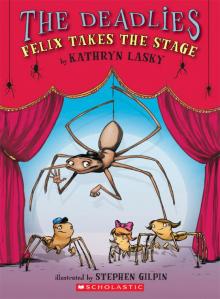 Felix Takes the Stage
Felix Takes the Stage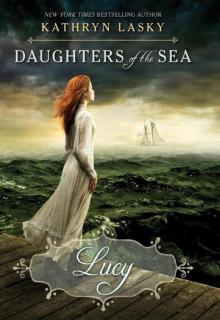 Lucy
Lucy Lone Wolf
Lone Wolf Broken Song
Broken Song The Shattering
The Shattering The Crossing
The Crossing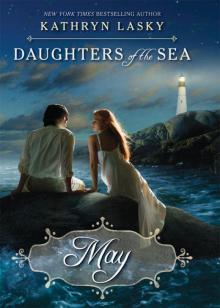 May
May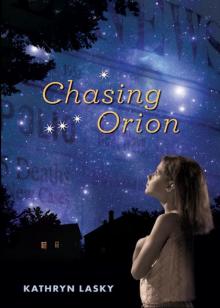 Chasing Orion
Chasing Orion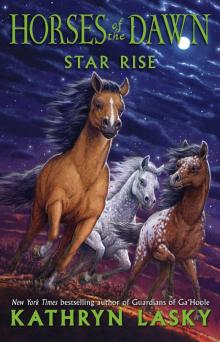 Star Rise
Star Rise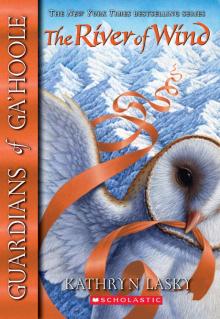 The River of Wind
The River of Wind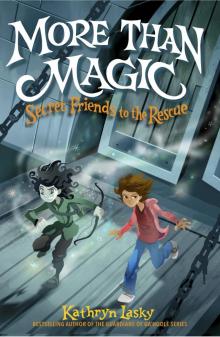 More Than Magic
More Than Magic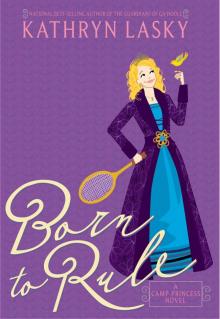 Born to Rule
Born to Rule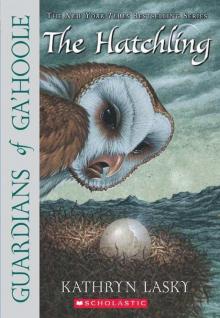 The Hatchling
The Hatchling The Rescue
The Rescue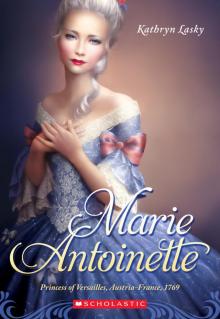 Marie Antoinette: Princess of Versailles, Austria - France, 1769
Marie Antoinette: Princess of Versailles, Austria - France, 1769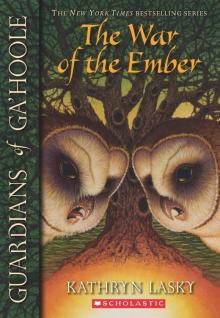 The War of the Ember
The War of the Ember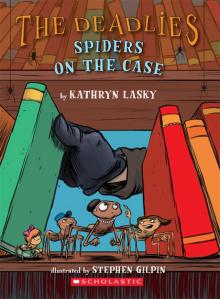 Spiders on the Case
Spiders on the Case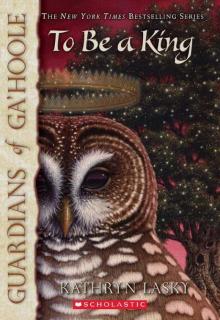 To Be a King
To Be a King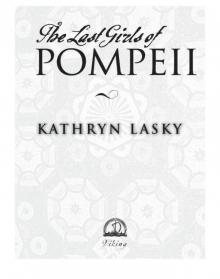 The Last Girls of Pompeii
The Last Girls of Pompeii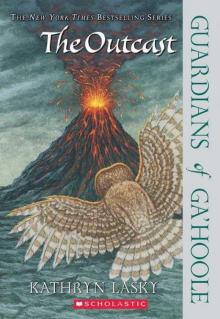 The Outcast
The Outcast Exile
Exile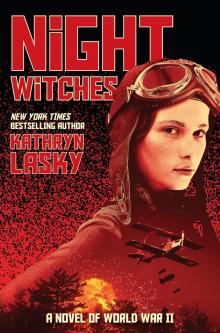 Night Witches
Night Witches Spirit Wolf
Spirit Wolf The Quest of the Cubs
The Quest of the Cubs Frost Wolf
Frost Wolf The Keepers of the Keys
The Keepers of the Keys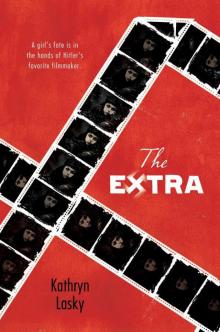 The Extra
The Extra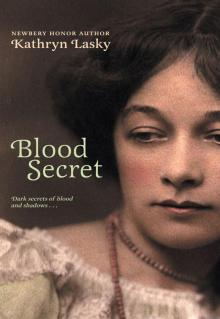 Blood Secret
Blood Secret Watch Wolf
Watch Wolf Blazing West, the Journal of Augustus Pelletier, the Lewis and Clark Expedition
Blazing West, the Journal of Augustus Pelletier, the Lewis and Clark Expedition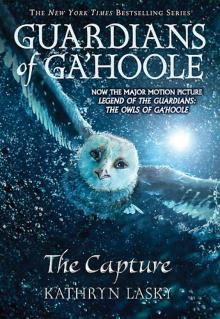 The Capture
The Capture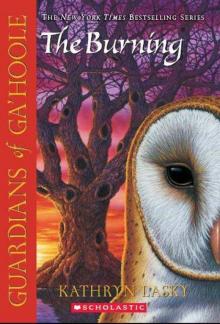 The Burning
The Burning The Journey
The Journey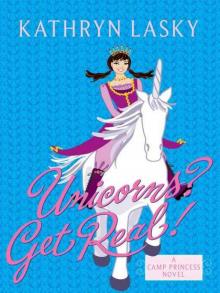 Unicorns? Get Real!
Unicorns? Get Real! The Escape
The Escape Star Wolf
Star Wolf Ashes
Ashes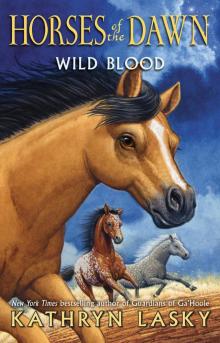 Wild Blood
Wild Blood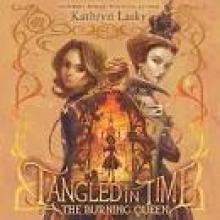 Tangled in Time 2
Tangled in Time 2 The Siege
The Siege Hannah
Hannah Elizabeth
Elizabeth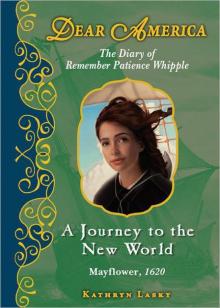 A Journey to the New World
A Journey to the New World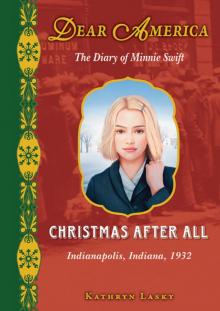 Christmas After All
Christmas After All Mary Queen of Scots
Mary Queen of Scots